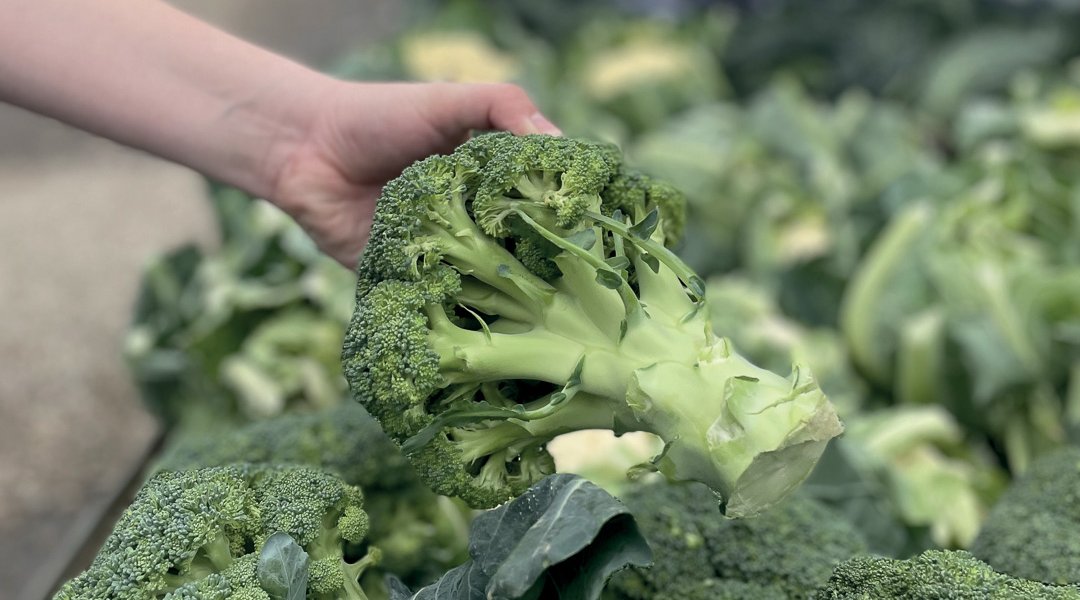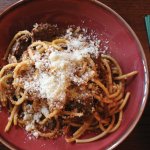These are challenging times for farmers, faced with financial, policy and environmental uncertainties. However, a new generation of Derbyshire farmers is finding innovative ways to safeguard their future, as Fiona Stubbs discovers.
Charlotte Kirkland, Hassop Family Farm
The Dilks family has rented Home Farm from the Hassop Estate for 34 years. Bob and Judy Dilks raised their children, Charlotte, Ross and Megan on the Peak District farm, which became fully organic eight years ago. Under Charlotte’s guidance, it has diversified into Hassop Family Farm, comprising an honesty farm shop, off-grid cabin and community facilities.

Charlotte Kirkland and her brother Ross Dilks.
“I want my children to have the same upbringing that I had,” says Charlotte. “It’s magical.”
A mum of two young children, she returned to farm life two years ago, leaving behind her decade-long career as a teacher at Walton Holymoorside Primary School.
“I’d felt conflicted because the farm needed support but couldn’t afford to employ extra people,” she recalls. “We knew we needed to do something to not just survive, but thrive.”
Charlotte and her husband, Adam, had already created a luxury, off-grid cabin – Peak District Hideout – during her first maternity leave. A retreat for two people, it offers the chance to recharge and reconnect with nature and has been named as one of the Sunday Times’ top seven UK Rural Retreats.
The next step was to establish the honesty shop, selling the farm’s own organic milk, milkshakes and coffee from vending machines as well as artisan gelato ice cream and other locally produced foods.
Open seven days per week, it has proved popular with both locals and tourists. “The response has been phenomenal,” says Charlotte. “People are becoming more aware of what’s in their food. Our milk is 100% traceable. The cows are right there in the field, grazing on completely natural, certified organic grassland – just as nature intended. They’re milked just once a day. We prefer quality over quantity.”
Returning to the farm, Charlotte developed a whole new skill set, from helping with livestock to setting up the farm shop – including branding and marketing. Her teaching background has also been helpful during school visits to the farm. “We’re teaching children about food and farming,” explains Charlotte. “They see where milk comes from, from the udder to the milk shake in their hand.”
Children can also explore a wooded farm trail, while an events area hosts a variety of attractions from music to pot painting, family yoga to summer holiday themed events.
Charlotte and her agronomist brother, Ross – an expert in the science of soil management – plan to eventually take over the running of the farm. Their sister, Megan Adams, farms in Ashbourne.
“I’m very fortunate that dad has always encouraged me to ‘muck in’,” says Charlotte. “The evolution of the farm has played to all our strengths – and we’ve now been able to employ a herdsman which couldn’t afford to do before. We’re grateful to our landlords, who have been really supportive. Without that, this wouldn’t have been possible.”
Adam Higginbottom, Adam’s Happy Hens, The Yews, Chesterfield
Adam is the third generation of this farming family. His grandparents, Olga and Frederick Higginbottom, bought The Yews after Olga’s experience as a wartime land girl led to an enduring love of farming. It was primarily a dairy farm under his parents David and Debbie, before Adam guided it in a new direction.

It started with the sale of a few dozen eggs …
Now Adam’s Happy Hens is a thriving farm shop and community hub. Adam says: “Traditional farming is a lot of work for very little return and there’s more and more red tape every year.
“I love farming but realised that, if I wanted to stay on the farm and make a living, I’d need to diversify. So, in 2014, I got some hens and started selling eggs from an honesty box.
“The egg sales took off quickly and we started also selling jams, chutneys and honey along with hay and straw. I’ve always loved selling stuff, starting with selling sweets at school. My dad says I was always destined to be a shopkeeper!”
The premises developed as more products – including cheese, meat, vegetables, bread, ice cream and cakes – became available from local suppliers.
Customers were initially fascinated by the hens roaming freely around their field and now families visit to see and feed a multitude of animals, including goats, horses, donkeys, rheas, pigs, ducks and geese. Children’s events are also regularly hosted at the farm.
“Small farms, in particular, need to diversify to survive,” says Adam, who shares life on the farm with his partner, Harriet Norman, and their two young children. “We’re fortunate in that we’re on the main road in and out of Chesterfield and social media has also played a big part in the success of the shop and the community facilities. Social media has its negative side but being able to highlight what we do on Facebook and Instagram has been a huge positive for us.”
Joby Pashley, Vegetable Farmer, Holymoorside
Joby Pashley planned to pursue his interest in dairy farming but instead discovered a niche in vegetable growing – and an appreciative audience among local wholesalers and farm shops.

Rather than building on a family background in farming, Joby is cultivating his own agricultural career.
“I started from scratch,” says Joby who, for the last four years, has been successfully growing and selling brassicas – in an area not typically associated with their production.
“I don’t have a family history of farming,” he adds. “My grandma has a livery yard and I’ve always enjoyed being around the horses. Her partner is a farmer and I’ve also worked with him. My goal was to milk cows but I realised I’d need to diversify to move forward.”
Joby began growing broccoli, cauliflowers, Brussels sprouts and three varieties of cabbage in rented fields in north east Derbyshire.
His early harvests were a huge hit with customers at Adam’s Happy Hens farm shop, who delighted in buying vegetables picked that morning direct from a trailer. It’s now become something of an autumn tradition – with families eagerly awaiting ‘trailer season’.
Wholesalers followed, keen to source locally-grown produce. “When people learn the vegetables are grown less than a mile away – and often picked that day – it really inspires them to buy,” explains Joby. “Sustainability is becoming more and more important to consumers.”
Joby plants in spring and harvests from mid-July to February or March, depending on the winter weather.
He adds: “I’ve had a lot of good people around me, helping me to source seed varieties that suit our soil and altitude. Commercial production of brassicas is more commonly associated with low-lying East Anglia and the Lincolnshire fenlands, so it’s a thrill for me to grow them so successfully here.”
Ben and Kate Furness, Brock & Morten, Ashford-in-the-Water
For Ben and Kate Furness, farming has been part of their lives for as long as they can remember. Both grew up on family farms in Derbyshire and, since 2013, have created a range of products based around the oil seed rape crop grown on Kate’s family farm. The cold-pressed rapeseed oil is used as the base for the majority of their artisan products, including mayonnaise, dips and dressings, many of which have received culinary awards for their taste and quality.

“Growing up in the farming community has given us a wealth of experience and a vast knowledge of the food and farming industries,” says Ben “This, coupled with our passion for supporting British farming and a love of good food helped us to see a great opportunity for using our oil seed rape crop. Rapeseed is a crop we have always grown, but we saw its potential beyond the farm gate.”
Kate and Ben, who have two young children, are proud of the products which have low food miles and is traceable from field to fork.
“Cold-pressed oil is naturally rich in omega-3, low in saturated fat and has a light, nutty flavour that makes it a brilliant addition to any kitchen,” adds Ben. “By pressing and bottling it ourselves, we can share something truly homegrown with local customers, restaurants and shops.
“Farming is at the heart of rural life, but it is no secret that the industry faces challenges – from unpredictable weather to changing markets. That’s why diversification is so important. By developing new ideas and adding value to traditional crops, farms like ours can remain sustainable, create local jobs and keep our rural communities thriving.
“Our products have received numerous great taste awards which we are hugely proud of. We supply our products to local farm shops and delis. We also are used by many pubs and restaurants with our oils often featuring on menus. We have recently updated our website shop which is proving very popular across the UK.
“Our aim is to keep farming at the heart of our business and continue to provide high quality products to make life easier in the kitchen for our customers.”






